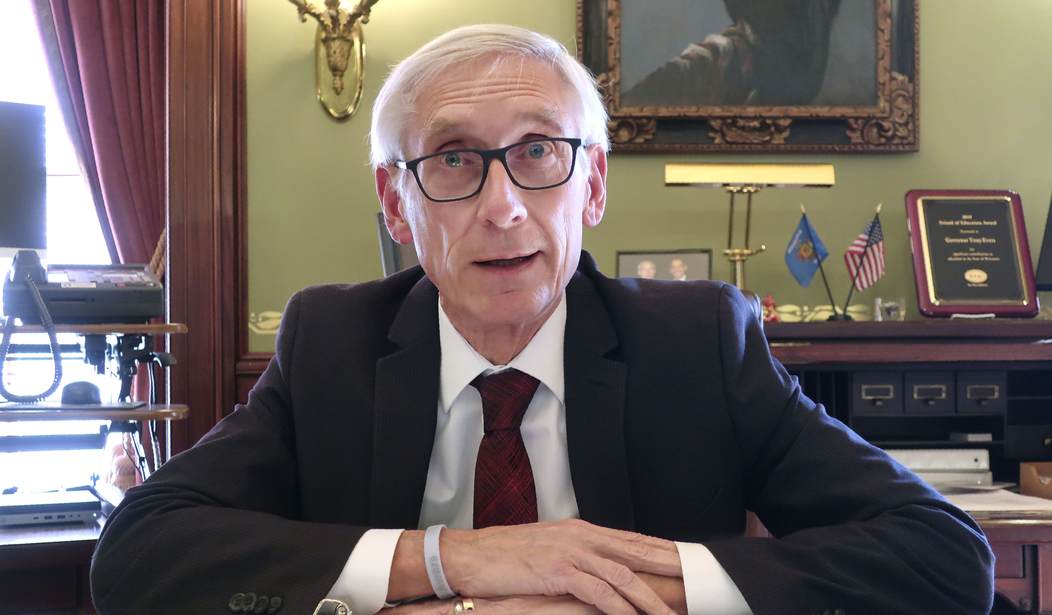MADISON — As of Friday, Amanda Worley said she had exactly $7.94 in her bank account.
The out-of-work Green Bay waitress has been waiting for more than two months for help that has yet to arrive, from a state government that first took away her job and then failed to deliver on its promise of unemployment assistance.
“It’s heartbreaking,” Worley told Wisconsin Spotlight. “These are the times you would think your government would be there for you, and, well, they’re not.”
Worley, like more than a half-million other Wisconsinites, is an economic casualty of the COVID-19 pandemic and Gov. Tony Evers’ response to it.
When the Evers administration began locking down the state in mid-March, restaurants and bars were among the first to close.
At 5 p.m. St. Patrick’s Day, one of the biggest bar days of the year, Tapped Sports Bar & Grill in Howard, was told to shut down. And just like that, Worley was out of a job. Her part-time gig as a Lyft driver also ended as the administration’s social-distancing and stay-at-home orders took effect.
Suddenly, like so many other Wisconsin workers, Worley became “nonessential.”
‘I have called nonstop’
She filed for standard state-based unemployment benefits. She applied for the acronym jobless assistance programs — Pandemic Unemployment Assistance (PUA), for contract workers and others, and Federal Pandemic Unemployment Compensation (FPUC), a temporary payment providing $600 weekly to supplement regular Unemployment Insurance or PUA.
When Worley finally got through to an overwhelmed state Department of Workforce Development UI claims center, she was told to file paperwork. She did. She was told she didn’t make enough money (about $3,000 in the previous quarter), but she could still apply for assistance. She filed more paperwork, and waited. And waited. After several weeks, Worley was told she could file a new application, but that would cost her three weeks of benefits.
Recommended
Like thousands of displaced workers, Worley has called over and over again, unsuccessfully trying to connect with a DWD agent.
“I have called nonstop. I couldn’t get through,” the waitress said.
Meanwhile, the bills keep coming. So do the DWD letters, saying she needed to do this or do that.
“Every time I get a piece of mail from them I don’t want to open it right away, because I’m worried about what it might say. But I hold out hope,” Worley said.
On Friday, she received four pieces of mail from DWD. She opened them during her phone interview with Wisconsin Spotlight. One was a letter granting her request to withdraw her original application. Back to Square 1.
Two letters were duplicate forms. Not helpful. Finally, a notice she almost overlooked because it looked like so many before.
It said something about benefits available if she wasn’t able to return to work by July 4. July 4! That’s an awful long to make it on $7.94. But it included a promising line: If Worley did not receive a monetary “computation” of pending unemployment benefits within 10 days she could contact her claims specialist. That’s something she hadn’t seen before. At least DWD was talking about issuing benefits. Worley dreaded the thought of another 10 days. She really dreaded the idea of having to work through the wasteland that is the phone tree of the DWD call center. But today, there was at least hope.
No.1 concern
Hope is running in short supply for too many unemployment assistance seekers, who, like Worley, have fruitlessly spent the past several weeks trying to get through to claims specialists.
State Rep. Janel Brandtjen (R-Menomonee Falls) said the DWD’s nightmarish Unemployment benefits process is the No. 1 complaint of constituent calls to her office these days.
Seeking help from legislative offices had been in many cases a way to cut down on wait times. But even lawmaker help isn’t cutting it as much anymore.
“Right now the worst thing is, we’d used to say we can get you a call (from DWD) in a week. Now we’re saying we can get you a call in two weeks,” Brandtjen said. “One constituent told me, ‘Janel, I don’t know if I’ll have a phone anymore by then,’ because she could no longer afford it.”
No doubt about it, these are unprecedented times. The Department of Workforce Development has been swamped by a flood of calls and online applications from a tsunami of unemployed.
DWD’s most recent tally shows the state’s Unemployment Insurance fund paid out more than $940 million in benefits in the first eight weeks of the COVID-19 outbreak and lockdown. As of the first full week in May, it had received 518,000 unemployment applications. The week of May 3 alone the Unemployment Insurance Division took 5.35 million calls, according to the agency.
A ton of those calls have gone unanswered.
Disconnect
State Rep. John Nygren (R-Marinette) in a letter to DWD Secretary Caleb Frostman noted the escalating frustration.
“A constituent recently called me in tears because she is unable to contact anyone at the DWD call center and she told me that the call center closes at 3:30pm. A check of DWD’s website shows that the call centers at DWD are only open from 7:35am until 3:30pm Monday through Friday,” Nygren wrote.
The lawmaker, who also co-chairs the Legislature’s Joint Finance Committee, asked Frostman whether the governor or DWD requested flexibility from the federal government.
“It is my understanding that the federal government is providing greater levels of flexibility to states during this unprecedented time,” Nygren wrote.
Life on hold
For now, Worley waits, checks the mail for some message of hope, and she prays.
“I don’t get state assistance like FoodShare or anything like that,” she said.
“At this point, I might have to try to apply. We shouldn’t have to be forced to live that way.”

























Join the conversation as a VIP Member